12 Sitcom Moments From the Past That Would Raise Eyebrows Today
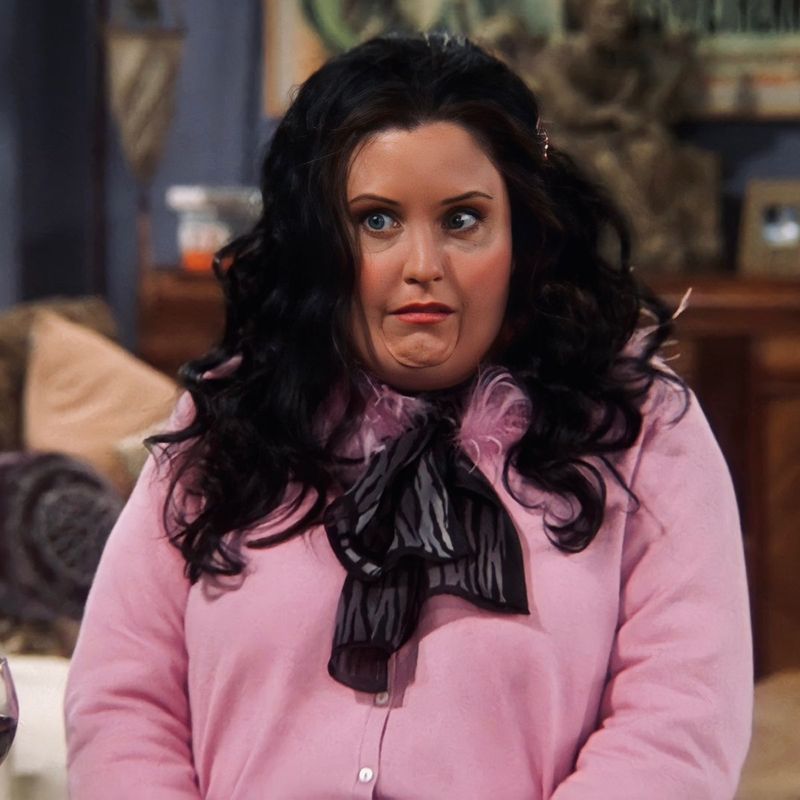
Nostalgia for old sitcoms runs deep, but rewatching them through a modern lens reveals just how much has changed. What once drew laughs from live studio audiences might now spark controversy, public backlash, or outright bans from network television. Society has become more aware of how media shapes attitudes toward race, gender, sexuality, and mental health—and not all sitcoms aged gracefully. These 12 moments from classic shows highlight just how different the standards were. Some were intended as satire or social commentary, but others were simply products of their time—moments that reflect outdated humor, cultural insensitivity, or harmful stereotypes. Today, many of these scenes likely wouldn’t survive the editing room.
1. “Friends” – Fat Monica Flashbacks
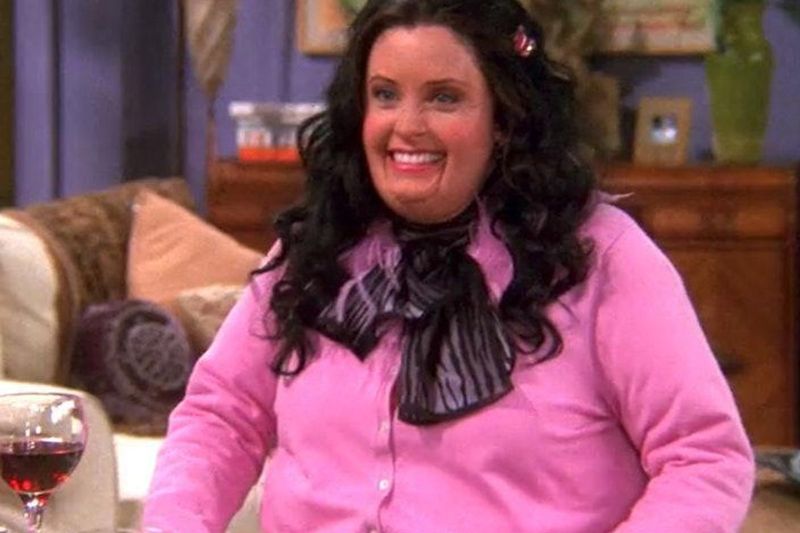
Monica Geller’s past weight struggles were a recurring joke throughout “Friends,” often reduced to fat suits and exaggerated behaviors played strictly for laughs. Rather than using her journey as an opportunity to promote body acceptance or self-esteem, the show often positioned “Fat Monica” as an object of mockery.
In nearly every flashback, Monica is seen dancing with food, struggling to move, or being the butt of a cruel punchline. While “Friends” remains beloved by fans, these particular gags haven’t aged well and are now frequently criticized for fat-shaming.
In a time when body positivity and representation are being taken seriously, these jokes would likely never make it past a modern writers’ room.
2. “The Office” – Diversity Day
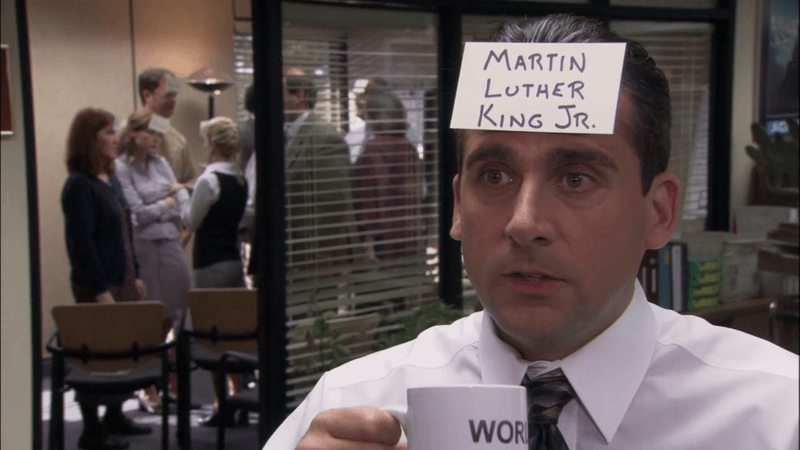
One of the most infamous episodes of “The Office” is “Diversity Day,” where Michael Scott hosts a wildly inappropriate workplace seminar. His misguided effort to teach tolerance involves offensive impressions, racial stereotypes, and tone-deaf jokes that cross just about every line.
While the episode was meant to satirize corporate insensitivity, it has sparked renewed debate over whether such humor actually reinforces the very biases it mocks. In today’s climate of corporate accountability and DEI (Diversity, Equity, Inclusion) efforts, a segment like this wouldn’t just be frowned upon—it would likely be pulled from the air.
The uncomfortable laughter it once drew would today be replaced by swift public criticism.
3. “Seinfeld” – The Contest
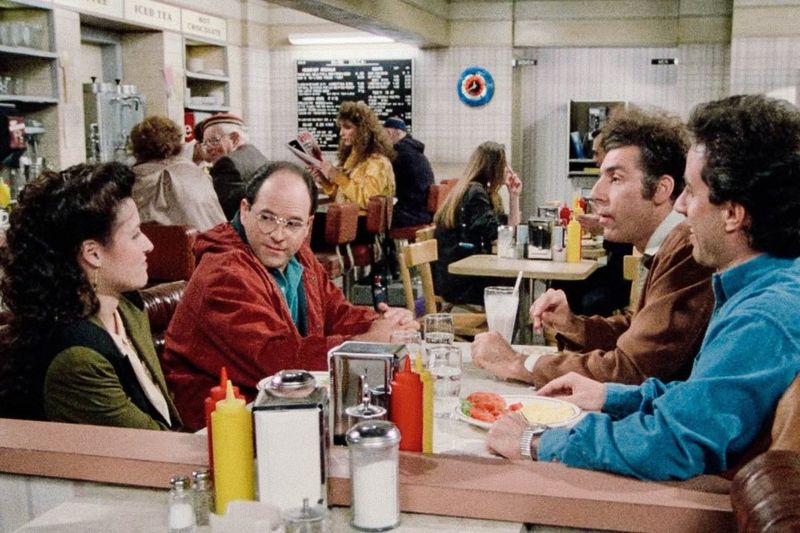
This episode is widely regarded as one of “Seinfeld’s” most clever and groundbreaking. “The Contest” revolves around who can abstain from masturbation the longest—though the word is never actually used. The clever euphemisms earned it praise, but even so, the subject matter raised eyebrows.
While it was a daring move for 1992, modern broadcast standards, especially in more conservative markets, would likely raise concerns about airing this topic in prime time. Today’s censors might question whether it’s appropriate for all audiences, especially without content warnings.
Despite its brilliance, the episode walks a tightrope between being witty and being too taboo for network television today.
4. “Married… with Children” – Al Bundy’s Misogyny
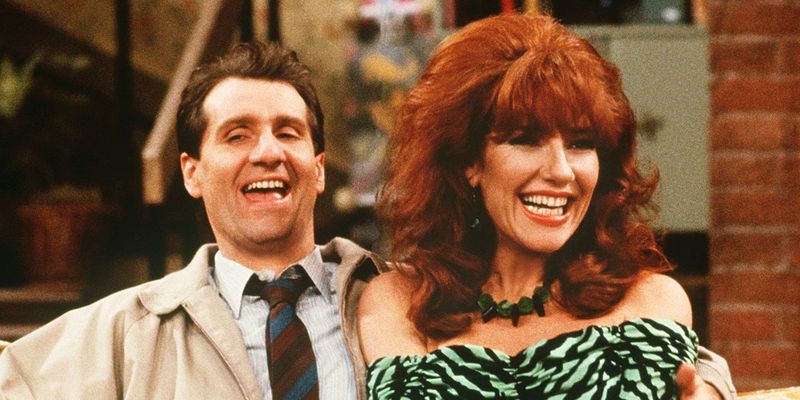
Al Bundy made a career out of mocking women, marriage, and modern life. His constant put-downs aimed at his wife, daughter, and nearly every female character became the show’s trademark. Though often exaggerated for effect, the tone of many episodes bordered on outright misogyny.
Lines like “Let me tell you something you’ll never hear—nice shoes, wanna f***?” were treated as punchlines. Today, they’d be called out as degrading and sexist. Modern audiences expect more thoughtful portrayals of relationships and gender roles, even in comedies.
A character like Al might still exist—but the jokes he told would require serious reworking to avoid backlash.
5. “Three’s Company” – Homosexuality as a Plot Device
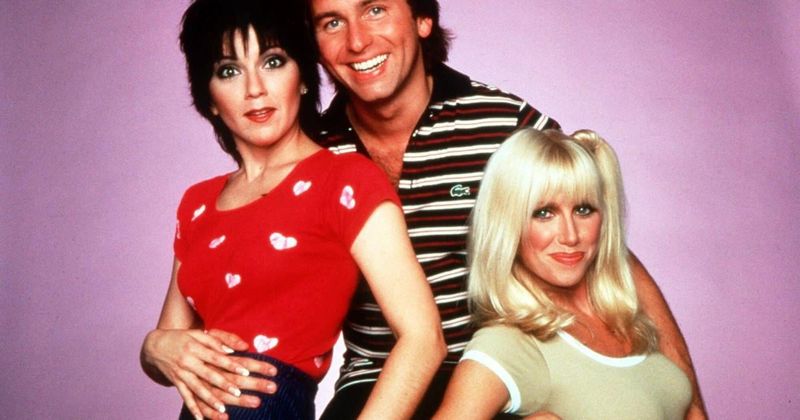
Jack Tripper’s need to pretend to be gay so he can live with two women was a central premise of “Three’s Company.” The ruse was played for comedic misunderstandings, with landlords and friends reacting to Jack’s “lifestyle” in often exaggerated or stereotypical ways.
At the time, it was seen as edgy and boundary-pushing. But today, pretending to be gay for laughs—especially when paired with outdated stereotypes—would be viewed as tone-deaf at best and offensive at worst. It turns queerness into a punchline, rather than treating it with dignity.
LGBTQ+ representation has come a long way, and shows today are expected to handle such themes with care.
6. “How I Met Your Mother” – Barney’s Predatory Behavior
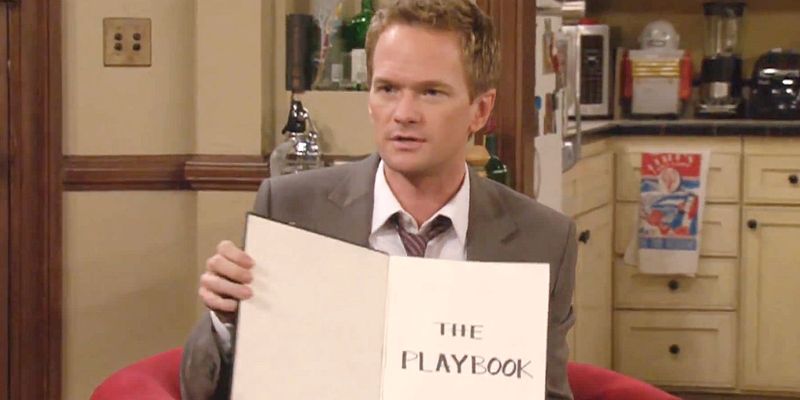
Barney Stinson is remembered for his outlandish confidence, expensive suits, and endless string of one-night stands. But many of his actions—especially how he manipulates and lies to women—would now be seen as predatory behavior rather than quirky charm.
Episodes show him using fake identities, exploiting women’s trust, and even drugging drinks in implied jokes. These scenes might have earned chuckles then, but they now raise serious concerns about consent and ethics.
In an era of #MeToo and heightened awareness around coercion, writing a character like Barney today would demand a complete overhaul to avoid justifying or glamorizing manipulative behavior.
7. “All in the Family” – Archie Bunker’s Slurs
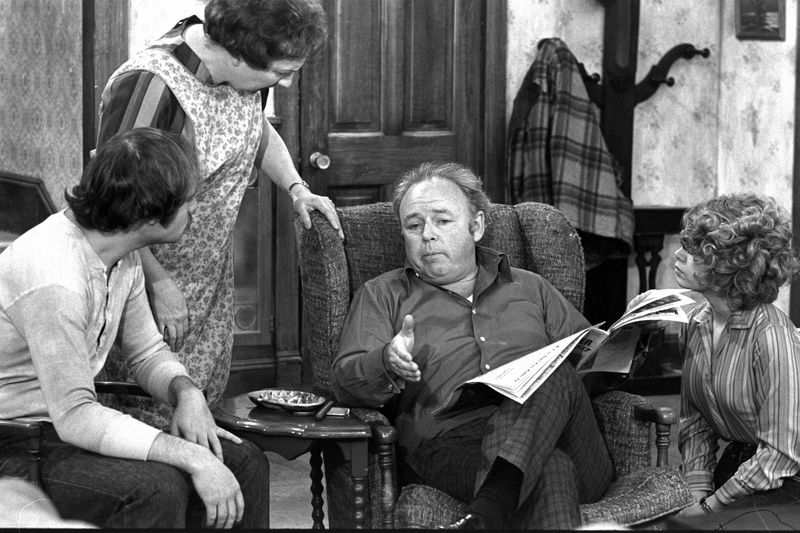
Archie Bunker was intentionally created to be a bigot—someone whose ignorance would be so exaggerated that it exposed real social issues. But the character’s frequent use of racial and ethnic slurs made many episodes uncomfortable, even in their time.
Although the show aimed to critique prejudice by putting it in Archie’s mouth, many viewers didn’t see the satire and instead embraced the character. Today, networks would likely hesitate to air such raw language without warnings or disclaimers.
What was once intended as social commentary now walks a fine line between critique and reinforcement of harmful stereotypes.
8. “Full House” – Stereotypical Gender Roles
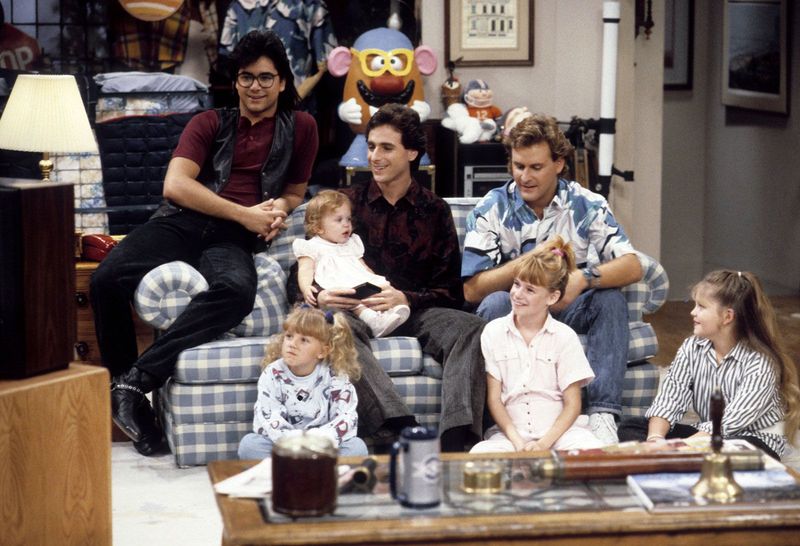
Though “Full House” was beloved for its family-friendly values, it frequently leaned into outdated gender norms. Boys were portrayed as rough-and-tumble pranksters, while girls were focused on beauty, feelings, or homemaking. Emotional expression for boys was often discouraged or mocked.
Episodes that reinforced “boys don’t cry” or “girls shouldn’t be tomboys” may have seemed harmless in the ‘90s, but now they contribute to a larger conversation about toxic masculinity and gender expression.
In today’s world, shows are increasingly expected to challenge these roles rather than reinforce them. The simplicity of “Full House” sometimes missed that opportunity.
9. “Saved by the Bell” – Jessie’s Pill Addiction Played for Laughs
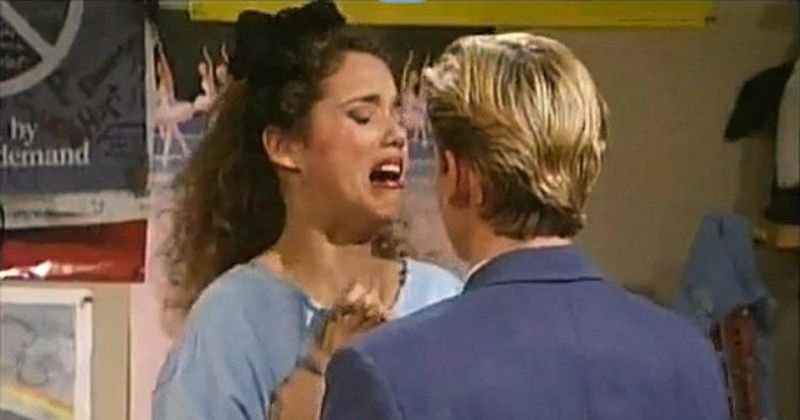
Jessie Spano’s addiction to caffeine pills became an iconic TV moment—mostly because it was unintentionally humorous. Her breakdown, screaming “I’m so excited, I’m so… scared!” became a meme before memes existed.
But the real issue is that the episode took a serious topic—teen addiction—and treated it with after-school special simplicity, then layered it with melodrama. Today, addiction storylines are handled with more nuance and sensitivity.
Instead of sincere empathy or follow-up, the episode quickly returned to normal, minimizing the seriousness of her struggle. Such a light treatment of substance abuse wouldn’t pass muster with modern writers or audiences.
10. “I Dream of Jeannie” – Master and Servant Dynamic
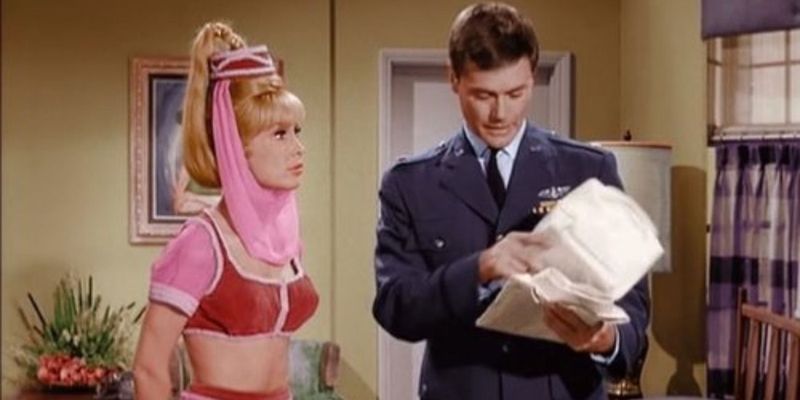
Jeannie, a beautiful genie who calls her owner “Master,” spends most of the series trying to please him. The setup may have seemed whimsical in the 1960s, but it now draws criticism for its underlying messages about power and gender dynamics.
The show places a male figure in a dominant role, with a magical, submissive woman catering to his needs. What once passed as lighthearted fantasy now feels uncomfortably close to romanticized servitude.
Modern sitcoms strive to depict equality and mutual respect in relationships, and a character like Jeannie would need significant rewriting to reflect contemporary values.
11. “Scrubs” – Casual Use of Blackface
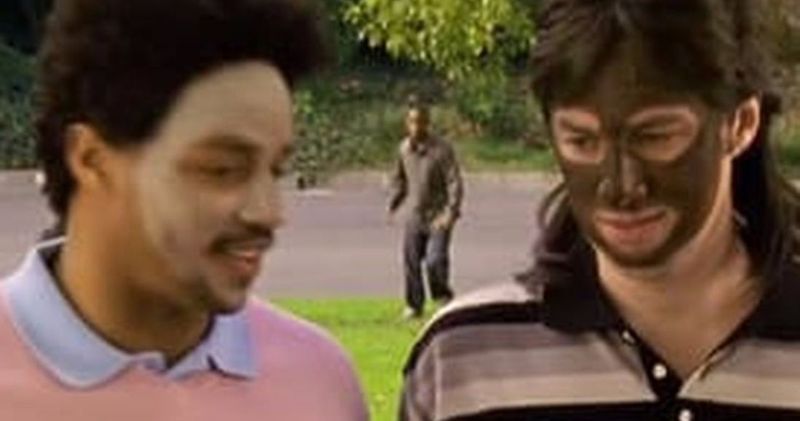
“Scrubs” is generally celebrated for its mix of humor and heart, but several episodes crossed serious lines—including scenes where white characters appeared in blackface for comedic skits or fantasy sequences.
At the time, these scenes might have seemed like edgy absurdism. But blackface carries a long and painful history rooted in racism, and no amount of context makes it acceptable today. In fact, these episodes have since been removed from streaming platforms entirely.
Such content isn’t just outdated—it’s harmful. The industry has learned (and is still learning) that certain boundaries are never worth crossing for the sake of a joke.
12. “Friends” – Chandler’s Transgender Parent Jokes
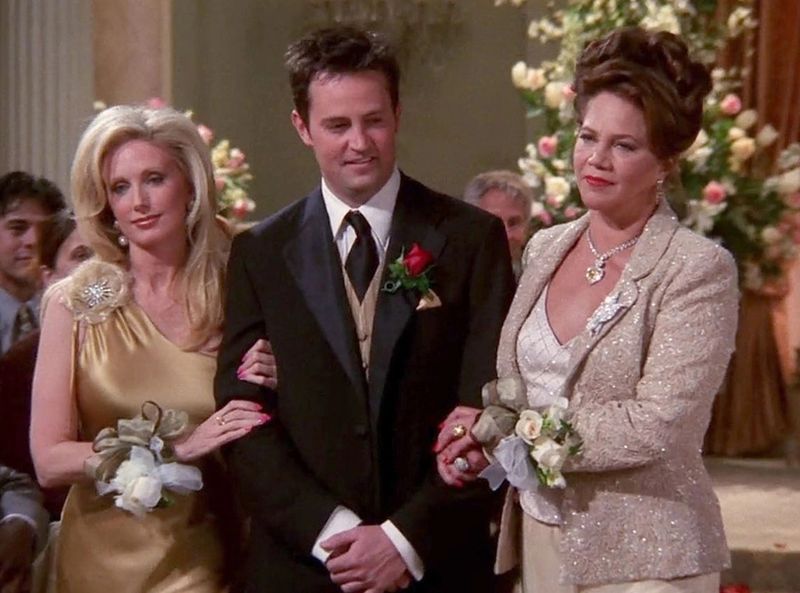
Throughout the series, Chandler’s transgender parent, played by Kathleen Turner, is repeatedly misgendered and mocked. The character is referred to with incorrect pronouns, and jokes are made at her expense, painting her identity as a spectacle.
Even if the intent wasn’t malicious, the execution feels cruel and uninformed by today’s standards. Rather than exploring a meaningful family dynamic, the show reduced a trans woman to a recurring punchline.
Modern shows strive to uplift transgender voices and portray them authentically. The mishandling of this character serves as a reminder of how far representation has come—and how far it still needs to go.

Comments
Loading…